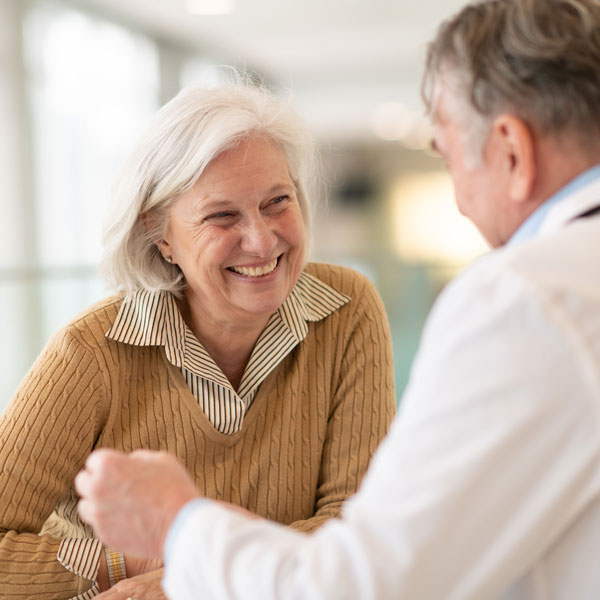Hemorrhoids
Hemorrhoid Facts
Hemorrhoids are one of the most common ailments known to us. More than half of the population will develop hemorrhoids by age 50 and three out of four adults will have hemorrhoid symptoms at some point in their lifetime. The average person suffers in silence for a long period before seeking medical care. The good news is that there are many effective options available to treat hemorrhoids.
We specialize in the use of modern and non-surgical methods to treat hemorrhoids with little discomfort and quick recovery.

What are Hemorrhoids?
Hemorrhoids are veins in and around the anus that tend to stretch under pressure, somewhat like varicose veins in the legs. Hemorrhoids can enlarge, swell and bulge resulting in symptoms such as itching, burning, pain or bleeding.
Straining over long periods of time, constipation, prolonged sitting, pregnancy and many other causes can result in hemorrhoids.

I’ve been treating hemorrhoids without the need for surgery for over 15 years. The procedure is generally non-painful and performed in the office in less than 5 minutes. You can usually return to work and your normal activity the same day.

Embarrassment, fear of extreme pain, a long recovery associated with traditional hemorrhoidectomy and fear of cancer all play a role in the delay in seeking treatment of hemorrhoids. Contact us today to learn more the many options to get you feeing better.

Colon, rectal and anal cancer can mimic the symptoms of hemorrhoids. We offer an evaluation during your first office visit to make sure there is nothing concerning and to give you piece of mind.

RBL and IRC are generally painless procedures that are performed right in the office in less than 5 minutes. Since they are generally painless procedures, you are able to drive home or go back to work following the procedure.
Types of Hemorrhoids
There are two types of hemorrhoids – internal and external. Symptoms and treatment options depend on the type of hemorrhoids you have. Both types can result in bleeding, irritation, protrusion of tissue and difficulty keeping the area clan.
Internal Hemorrhoids
Internal hemorrhoids tend to result in burning, irritation and bleeding as well as prolapse of tissue with bowel movements.
External Hemorrhoids
External hemorrhoids can thrombose and cause a large firm bump or nodule with extreme pain and discomfort.
What Are The Non-Invasive Treatments?
Sitting in sitz or a warm bath, applying hemorrhoid creams, and eating a high fiber diet can help relieve mild symptoms. For many, however, symptoms often recur.
More severe hemorrhoid flare-ups can cause bleeding, swelling, or excessive pain.
Non-surgical management of hemorrhoids such as Rubber Band Ligation is the most effective way to treat hemorrhoids without requiring painful or invasive surgery and usually can be performed on your very first visit right in the office.
Our hemorrhoid treatments are non-surgical with little discomfort and quick recovery.
Some Medical Advice
Colon, rectal and anal cancer can mimic the symptoms of hemorrhoids. We offer an evaluation during your first office visit to make sure there is nothing concerning and to give you peace of mind.
Rubber Band Ligation (RBL)
Rubber Band Ligation (RBL) works effectively on internal hemorrhoids that irritate, protrude, or bleed following bowel movements.
Straining over long periods of time, constipation, prolonged sitting, frequent loose stools, and many other causes can result in hemorrhoids.
A special applicator is used to deliver a small rubber band over hemorrhoids, cutting off its blood supply. Hemorrhoids and the band fall off during a regular bowel movement a few days later generally without any discomfort or pain at all.
Click here, for more information.
Infrared Coagulation (IRC)
Infrared Coagulation (IRC) is a modern technique for the management of hemorrhoids that are not protruding but actively bleeding. IRC delivers photocoagulation to the hemorrhoid veins in a fast and painless manner and hemorrhoid shrivels up right away. We offer this procedure in the comfort and convenience of the office without the need for a surgical procedure. This is also a good option for those who are on blood thinners.
Click here, for more information.
Some Medical Advice
RBL and IRC are generally painless procedures that are performed right in the office in less than 5 minutes. Since they are generally painless procedures, you are able to drive home or go back to work following the procedure.
What to Discuss With Your Doctor
Am I at risk of having hemorrhoids?
Constipation and straining are often the main causes of hemorrhoids. Others get hemorrhoids after frequent episodes of diarrhea. Hemorrhoids tend to run in families, and you may be more likely to get them if your parents had them. Other factors include obesity, sitting too long on the toilet, or standing or lifting too much. Pregnant women often get hemorrhoids because of the strain from carrying the baby and from giving birth.
How can I prevent getting hemorrhoids?
The following are tips for hemorrhoid prevention: Include more fiber in your diet. Fresh fruits, leafy vegetables, and whole-grain bread and cereals are good sources of fiber. Drink plenty of fluids. Eight glasses of water each day is ideal. Do not read on the toilet as this tends to promote sitting and straining which leads to swelling. Exercise regularly but avoid excessive lifting to the point of straining. Avoid laxatives that lead to loose and frequent stools and diarrhea. This can be just as harmful to hemorrhoids as constipation. Bulk-forming fiber supplements, such as Citrucel®, Metamucil®, Benefiber® as well as a daily stool softener such as Colace®, may help avoid constipation and straining. When you feel the need to have a bowel movement, don’t wait for long periods before using the bathroom.
Do hemorrhoids lead to cancer?
No. There is no relationship between hemorrhoids and cancer. However, the symptoms of hemorrhoids can be similar to those of colorectal cancer and other diseases of the digestive system. Therefore, do not rely on over-the-counter medications or other self-treatments. See one of our specialists so your symptoms can be properly evaluated and effectively treated.
What can I do to help with the pain and discomfort?
If you develop a hemorrhoidal flare-up or excessive pain, call to schedule an appointment right away to help prevent complications. We offer same day and next day appointments with one of our specialists. The following measures may help minimize your discomfort.
- Take warm soaks three or four times a day and after every bowel movement.
- Clean the anal area after each bowel movement by gently patting with moist toilet paper or moistened pads, such as baby wipes. Do not scrub the area or use soaps.
- Use ice packs to relieve swelling.
- Apply an over the counter hemorrhoid cream that contains witch hazel or a similar brand to help lubricate before a bowel movement.
- Avoid constipation by drinking up to 8 glasses of water a day, eating a diet high in fiber, adding a bulk fiber agent as well as a stool softener.
